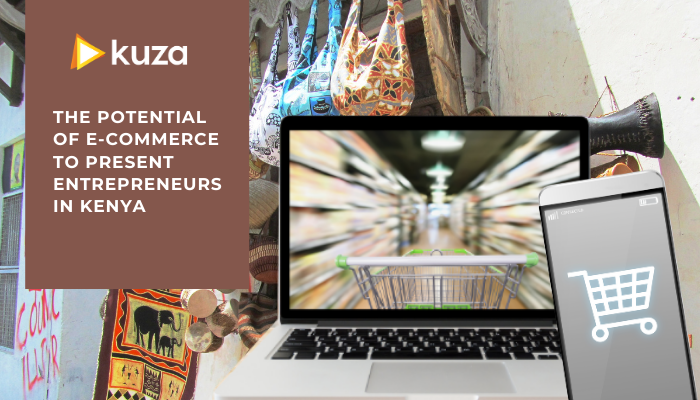With the worldwide breakout of the COVID 19 virus posing serious negative impacts to economies of various countries globally, there is a need for the present-day entrepreneurs in Kenya to consider smart ways of doing business and grow their income even as we wait for the unforeseeable future of the deadly disease.
One of these smart ways is going online in terms of marketing and selling of their goods and services which of course will adhere to the social distancing and cashless transfers among other recommendations by the government to limit the spread of the virus.
Though it has its various challenges just like any other means of doing business in the country, e-commerce is presenting a bright future for those who are keen to build their brands and grow their revenues.
According to a recent report by financial analysts at Citibank, it was estimated that Kenya’s e-commerce market could be worth Sh70 billion in the near term, Sh120 billion in the medium term and Sh500 billion in the long-term.
In addition, today there are various planforms ready to sponsor new entrants in the online business. One such is Gray Matters Capital (GMS), a calibrator accelerator program that focuses on funding various enterprises to enable them to actualize and bring e-commerce front to market.
In the past, newcomers into the market had no such platforms and had a higher overhead cost. A high consideration was given to monthly payments such as rental space, electricity, water, and security.
For startups, there was less room for error when it comes to their initial financial investment because funding could dry up very quickly if one was not careful.
Other than monthly expenses, location also plays a vital role in the success or demise of the business. Picking a poor location could hurt a business no matter how your products and pricing were.
At your location, you wouldn’t have control over what happens around your store. A competitor could open next door and crush your business or the up-keep and safety of the area would deteriorate keeping customers away from your shop.
In Kenya, according to a recent e-commerce report by the United Nations Conference on Trade and Development, it was estimated that the number of online shoppers had doubled to 2.61 million from 2014 to 2017.
With the country having more than 47.6 million active mobile money accounts, accessed through more than 200,000 agents, there has been the ease in making payment indicating online shopping is not slowing down anytime soon.
Trade has been revolutionized by the online presence and newcomers have managed to avoid the constraints of having a physical store but online fronts also bear challenges.
To begin with, creating an online presence such as a website, one will need to find the right service provider and with it comes a cost.
A decent website build may cost between Sh30,000 to more than Sh100,000, its maintenance would significantly cost more.
The skills required to create digital content, grow your audience and convert them into customers may require the appointment of a digital marketer hence stretching your marketing budget if any.
One will also be required to provide a variety of ways to make payments because customers want a choice.
A recent report by KPMG of seven Sub-Saharan countries including Kenya indicates that e-commerce makes up one to three per cent of GDP, and is predicted to make up only 10 per cent of total retail sales in key markets by 2025.
This gap between online presence and customer, conversion highlights the need to consolidate the seller’s in-store and online platform to create a complete customer experience and generate more revenue.
One of the reasons why online shopping is still lagging behind is because a majority of customers do not trust online shopping sites, this is according to a recent GeoPoll survey conducted in five African countries; Kenya, Uganda, Nigeria, South Africa and Ghana on online shopping.
In Kenya, trust was the highest reason at 33 per cent followed by shipping costs at 19 per cent and payment methods not being supported at 11 per cent.
It follows therefore that, those business entrepreneurs who would consider e-commerce stand a high chance of benefiting now and going into the future.



















